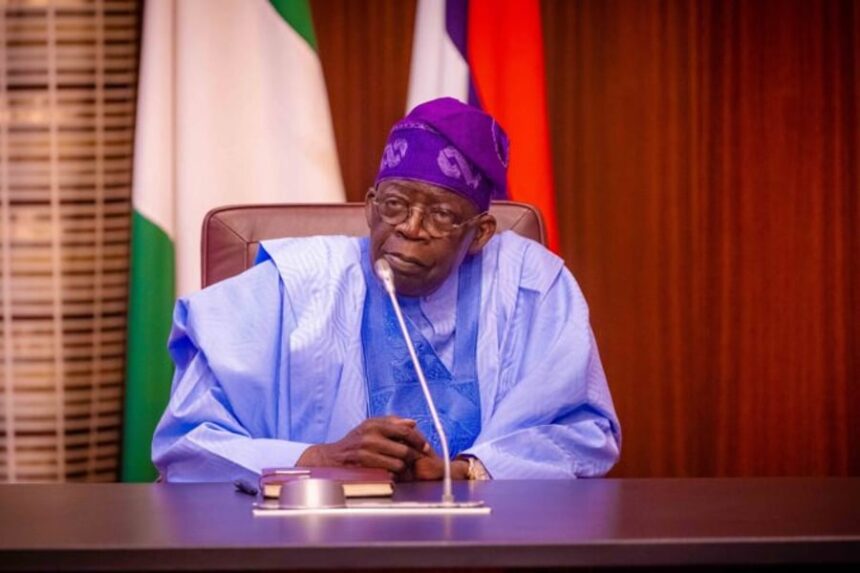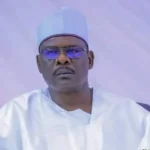In December 2024, President Bola Tinubu presented a proposed national budget of N49.7 trillion to a joint session of the National Assembly. However, on February 5, 2025, he notified lawmakers of a significant adjustment, increasing the budget by an additional N4.5 trillion, bringing the total to N54.9 trillion.
The revised budget breakdown includes N3.65 trillion allocated for statutory transfers, N14.32 trillion for debt servicing, N13.06 trillion for recurrent non-debt expenditure, and a substantial N23.96 trillion earmarked for capital expenditure.
The National Assembly had originally set January 30, 2025, as the deadline for budget approval. However, due to delays in concluding budget defense sessions, plenary meetings were postponed until February 4, 2025. Abubakar Bichi, the Chairman of the House Committee on Appropriations, acknowledged that the lengthy process, which involved detailed budget defense, harmonization, and final report submission, required more time.
Upon resuming after the Christmas break, President Tinubu sent two separate letters to both chambers of the National Assembly, proposing the increase in the budget, which was attributed to the additional revenues generated by key government agencies. These additional funds amounted to N1.4 trillion from the Federal Inland Revenue Service (FIRS), N1.2 trillion from the Nigeria Customs Service (NCS), and N1.8 trillion from other government-owned agencies.
The letters were read aloud in both the Senate and the House of Representatives during plenary on the same day. Senate President Godswill Akpabio assured that the budget would be reviewed promptly, and efforts would be made to ensure that deliberations would be concluded before the end of February.
True to his word, the National Assembly worked diligently to meet the February deadline. On February 13, 2025, the Senate passed the budget with a total of N54.99 trillion. In his remarks after the passage, Senate President Akpabio commended the Finance Committee Chairman, other standing committee chairmen, and all members for their contributions to the successful passage of the budget. He expressed hope that the funds would be used effectively to foster Nigeria’s development.
Despite this progress, some experts, manufacturers, and analysts raised concerns about the proposed budget, with some dismissing it as an academic exercise. These critics questioned the rationale behind incorporating additional revenue into the 2025 budget, instead of using the extra funds to ensure the full implementation of the 2024 budget. They warned that if the funds were not properly allocated, it could lead to inflationary pressures.
David Etim, President of the Calabar Chamber of Commerce and Industry (CALCCIMA), pointed out that while budgets are projections, their successful execution depends on the government’s ability to generate and deploy revenue effectively. He emphasized that if the additional N5 trillion were directed toward infrastructure development, it could be a game-changer for the economy. On the other hand, if the funds were allocated to recurrent expenditures or consumption, it would likely exacerbate inflation.
Etim remained optimistic about the government’s goal of reducing inflation to 24 percent, with a longer-term target of 15 percent. He believed that using the funds for productive investments, particularly in infrastructure, would lead to greater economic stability, employment creation, and improved market access, benefiting manufacturers.
Daniel Dickson-Okezie, an expert in small and medium enterprises and a member of the Lagos Chamber of Commerce and Industry (LCCI), highlighted the need for a strategic approach to budget allocation. He argued that the government should prioritize long-term investments over short-term expenditures. Drawing a comparison to developed economies, he noted that budgets in such countries typically lean more toward capital projects. This approach, he said, would create a multiplier effect, driving growth across various sectors.
Dickson-Okezie also stressed that the allocation of funds should be done judiciously, with a focus on infrastructure. He suggested that if the budget were invested in the right areas, it would drive economic growth and improve living standards for Nigerians.
Yusuf Mohammed, a former member of the House of Representatives, expressed skepticism about the proposed increase in the 2025 budget. He argued that whether the additional funds would generate inflation or stimulate the economy was beside the point. Mohammed questioned why the additional revenue wasn’t used to fully implement the 2024 budget, instead of being incorporated into the 2025 budget. He suggested that the government should have used the extra revenue to execute the projects already planned for 2024, which would stimulate economic activity and create jobs.
He further pointed out that many projects were often left incomplete due to inflation and cost changes. He argued that if the government had used the additional funds for 2024, it could have accelerated the implementation of important infrastructure projects, resulting in significant economic activity and greater employment opportunities.
Mohammed also raised concerns about the incomplete implementation of the 2024 budget, suggesting that the government should focus on fully executing it before shifting funds to the 2025 budget. He proposed that instead of increasing the 2025 budget by 9 percent, the government could adjust projections to reflect anticipated revenue growth, which would allow for the continuation of ongoing projects.
According to Mohammed, a budget is essentially a plan based on revenue projections, and the government should revise its budget based on actual revenue performance. If revenue generation is increasing, as the President claims, the government could use this opportunity to revise the 2025 budget to fund all planned projects.
He concluded that the entire debate over the budget increase was more about politics than economic realities. He noted that the National Assembly had historically made revenue projections and adjustments based on political calculations rather than actual economic performance.
As the debate continues, stakeholders emphasize the importance of focusing on infrastructure-related spending. The success of the government’s budget execution strategy will determine whether the additional N5 trillion will lead to meaningful economic growth or contribute to further inflationary pressures. The public’s expectations remain high regarding the budget’s ability to improve the living conditions of Nigerians and foster long-term economic prosperity.




